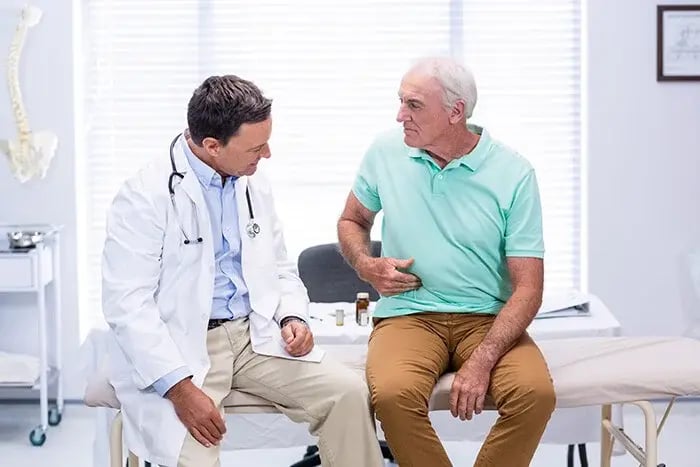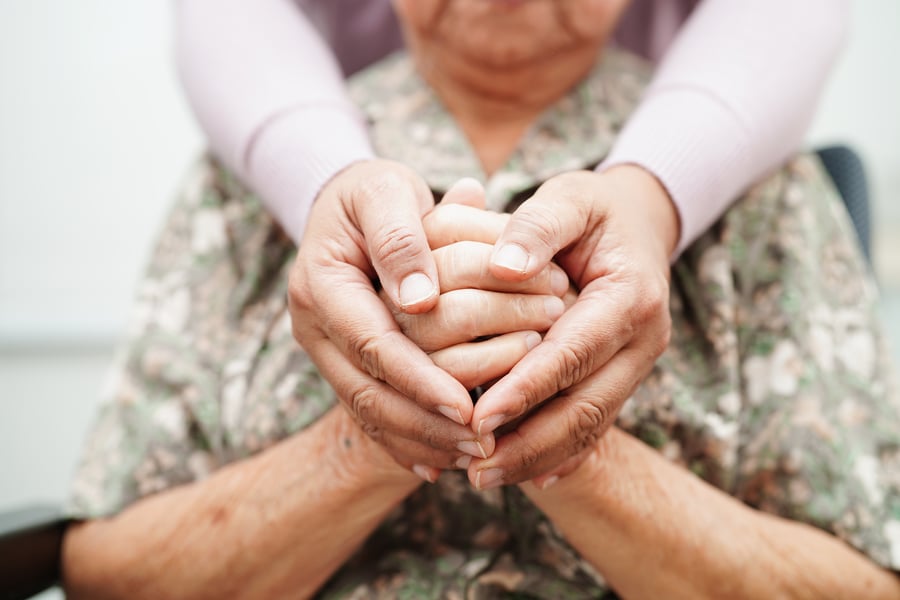Home Health
Our home health service is an affordable, comprehensive program that provides the skilled health care services and assistance you need to stay at home, living life your way. Whether you’re living at home, in a retirement community, or if your doctor feels you need additional services after a hospital or skilled rehabilitation stay, we can visit your location and assist with your home health plans.
Our well-trained and carefully screened specialists are available 24 hours a day, 7 days a week. Upon request, we will schedule a visit with you in your home or coordinate with your discharge planning team to evaluate your health care needs. We will also consult with your doctor to develop your treatment plan. Our services are covered by most insurances and we are a Medicare-certified provider.

When home health is needed:
- Recent hospitalization or rehabilitation center discharge
- Skilled assessments and teaching
- Occupational, speech, or physical therapy
- Medication changes
- Wound care
- Mobility training
- Increased weakness
- Change in cognition
- New to oxygen use in home
- Change in swallowing or speech
- Catheter or need for intermittent catheterization
Home health provides:
- Management of chronic illness
- Care following a hospital or rehabilitation stay
- Addressing fears and risk of fall
- Skilled nursing
- Physical therapy
- Occupational therapy
- Speech therapy
- Home health aide
- Social work services
- Medicine administration
- IV therapy and injections
- Wound care management
What are the home health care eligibility criteria?
-
You are considered “homebound,” or confined to your home.
-
You need part-time or intermittent skilled services and as long as you’re “homebound,” which means: You have trouble leaving your home without help (like using a cane, wheelchair, walker, or crutches; special transportation; or help from another person) because of an illness or injury; leaving your home isn’t recommended because of your condition.; you’re normally unable to leave your home because it’s a major effort.
-
Your doctor orders home health care for you.
-
A doctor or other health care provider (like a nurse practitioner) must have a face-to-face visit with you before certifying that you need home health services. A doctor or other health care provider must order your care, and a Medicare-certified home health agency must provide it. In most cases, "part-time or intermittent" means you may be able to get skilled nursing care and home health aide services up to 8 hours a day, with a maximum of 28 hours per week. You may be able to get more frequent care for a short time if your doctor or other health care provider determines it's necessary.
-
Who pays for home health care services?
-
Medicare Part A covers inpatient hospital stays, skilled nursing facility care, hospice care, and some home health care and/or Medicare Part B cover eligible home health services as long as you need part-time or intermittent skilled services and as long as you’re “homebound."


Experts recommend prehabilitation for many orthopedic surgeries
Embarking on a surgical journey can often feel like preparing for a marathon - both require strength, resilience, and, most importantly, proactive preparation to ensure the best outcomes. This is where the concept of prehabilitation (prehab) takes center stage, a revolutionary approach that is redefining patient care in the world of orthopedics. Prehab offers a strategic advantage, equipping patients with the strength and stamina needed to not only face surgery with confidence but also to recover at an accelerated pace. By engaging in targeted exercises and therapies before surgery, individuals can significantly enhance their physical and mental readiness, reducing post-operative complications and shortening the road to recovery. Imagine stepping into surgery with your best foot forward, empowered by the benefits of prehab. Dive deeper into this transformative approach and view the Benefits of Prehab with our downloadable PDF.
Joint Replacement Therapy

Hospital to Home
Discharge planning process
- Coordinates DME prior to discharge
- Assures warm handoff to home care team
Skilled Nursing
Skilled Nursing
- Assess and manages clinical conditions
- Performs medication reconciliation
- Manages pain
- Provides INR testing
- Monitors for infection of surgical sites
- Provides regular progress reports to orthopedic and primary care physician
Hospital to Outpatient Therapy
Physical Therapy
- Determines individualized orthopedic clinical care pathways including intensity and frequency of visits
- Implements evidenced based "front loading"
- Provides regular reports to orthopedic physician
- Facilitates warm handoff from home physical therapist to hospital outpatient therapy department
- Reinforces safety in the home
- Promotes independence with activities of daily living
- Supports caregiver involvement in recovery process

